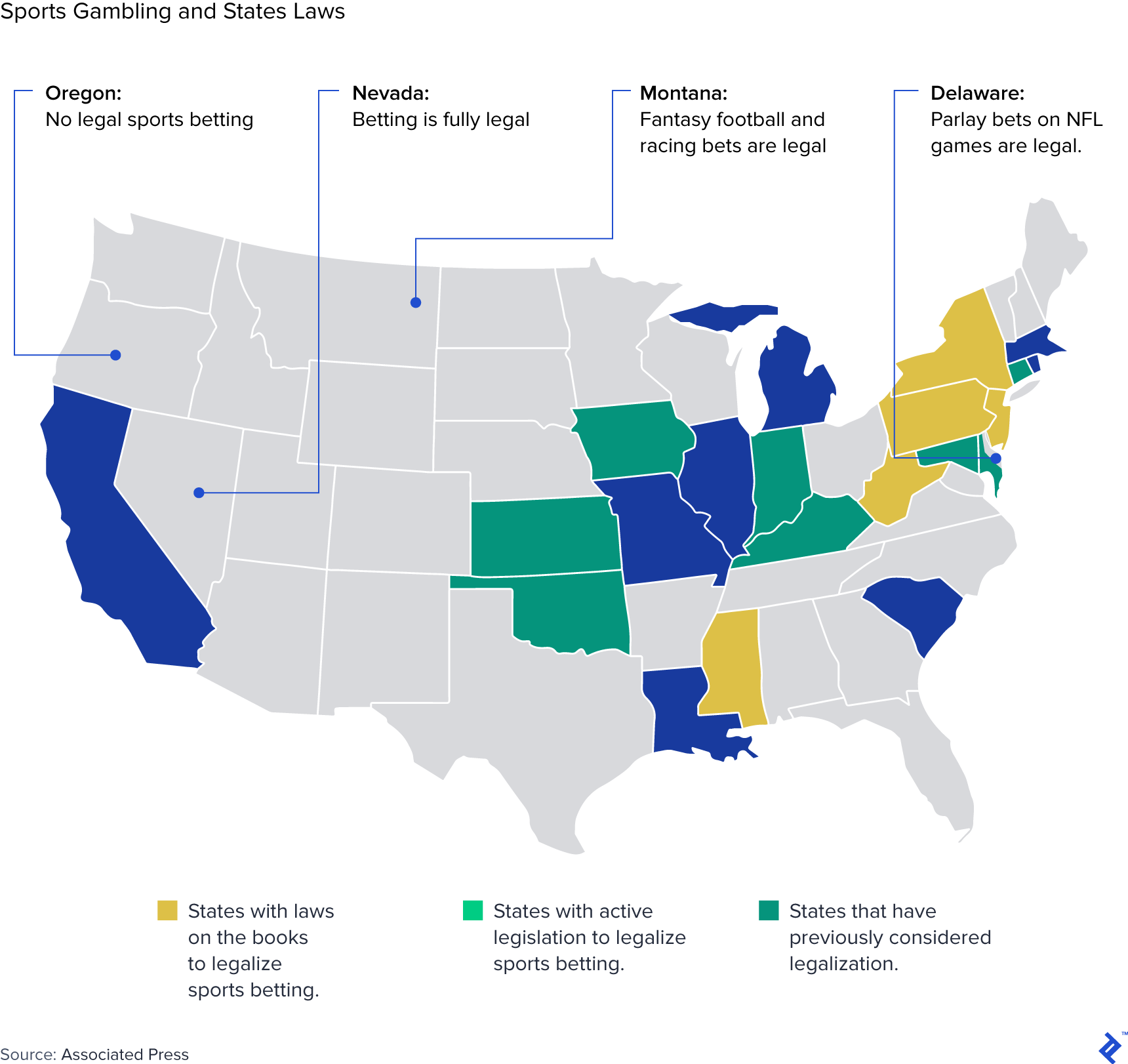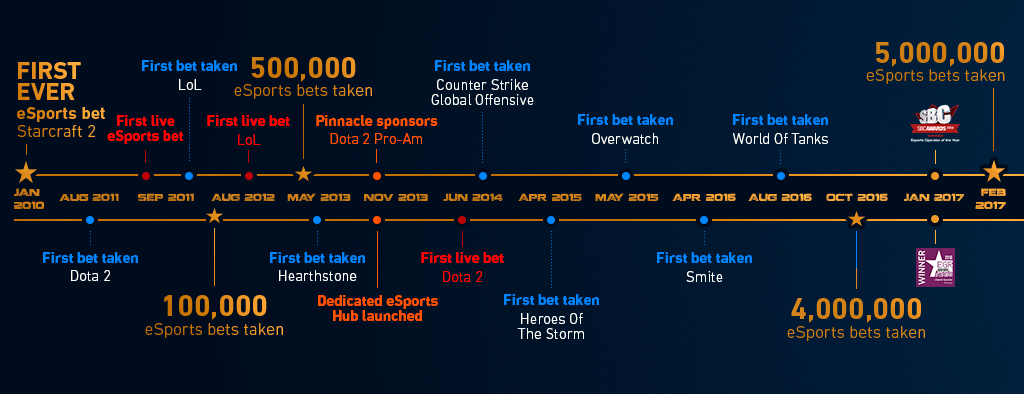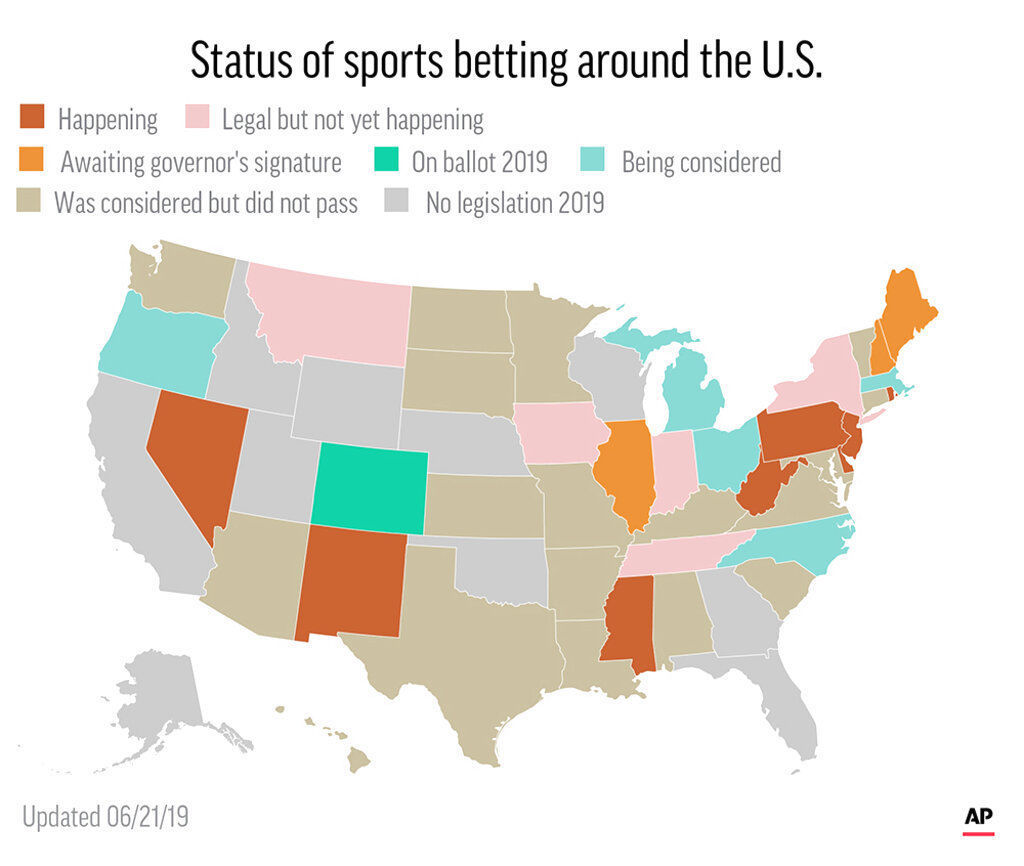NASHVILLE, Tenn. — Lottery officials say there's no timeline for when Tennesseans can start placing online sports bets, despite the act becoming legal in July.
The Tennessee Lottery is currently accepting public comments on draft rules for the program in Tennessee. It would allow sports betting online only through vendors who decide to take part in the program. The comment period ends on Monday.
California Sports Betting Timeline 2016 – The attempts to legalize sports betting in California began in 2016 when Democratic Assemblyman Adam Gray introduced sports gambling legislation titled CA AB 1573. Gambling has taken place, in some form or other, for hundreds if not thousands of years, and is inextricably linked to the history of humanity. From ancient China where indications of rudimentary. July 26th – Sports betting is legalized in North Carolina but only at retail locations initially. Early 2020 launch anticipated. August 15th – legal sports betting – both retail and mobile – starts in Iowa at eight of the state's authorized casinos (18 of the 19 casinos given approval). Bettors have to first register in person. Sports gambling in North Carolina has been legitimate for over a year now, but residents' legal ways to bet on sports are not possible. Since Governor Cooper signed SB 154, transitioning the bill into law in July 2019, the Eastern Band of Cherokee Indians gained rights to run bookmakers at their two gaming clubs.
Once comments on the program are in, Tennessee Lottery and an appointed nine member advisory board will make the final decisions on the rules. It's unclear how long that process will take. Once that's completed, the process of creating the application for vendors will occur.
Despite there being no set date for bets to open, some businesses are hopeful betting will begin sometime close to when March Madness begins. Casino night party decorations.
Sport Gambling Timeline
Cal Spears is the CEO for Better Collective TN, a sports betting company that owns and operates Rotogrinders.com. Spears said he has high hopes for the Tennessee sports gambling program despite some key concerns with rules that are currently written in the draft.


One such rule caps the total payout for players to 85-percent. That's a number Spears says is much lower than the industry average and means players would receive less money per bet than other states.
'It would be a poison pill,' said Spears. 'It would be so detrimental to a competitive marketplace that I'm afraid a lot of potential licensees like Draftkings, Fanduel [and] casinos would not even pay for a license. Because you'd have to offer lines and odds that are so not competitive that I think people would continue to bet with their local bookies, or off shore or fly to Vegas.'
Poker odds give you the probability of winning any given hand. Higher odds mean a lower chance of winning, meaning that when the odds are large against you it'll be a long time until you succeed. Texas holdem poker odds chart. Poker Odds Calculators. The most popular Texas hold'em odds calculator on the Internet! Learn your exact chances of winning in any given hand. Find out just how much of a bad beat you suffered. Poker Tools Poker odds calculate the chances of you holding a winning hand. The poker odds calculators on CardPlayer.com let you run any scenario that you. The poker odds are in your favor. Now if your opponent bet $100 that would be a much dicier proposition. Suddenly you are risking $100 to win $200 and the odds are 200-100, or simplified, 2-1. Since you're only 6-1 to make your hand you should probably fold.
Another rule Spears would like to see change would impact players who make multiple bets and decide to lump them together to create a higher payout.

'There's a parlay rule that's bad for players as well. Let's say you have three bets. So, you parlay them together to get a big payout. If one of those bets pushes, like they do in New Jersey or in most markets, they'll just remove that bet from your parlay and pay you on your other two bets,' he said.
The bill's sponsor, Rick Staples also has high hopes for a March Madness roll-out. It's unclear which companies are currently eyeing Tennessee for sports betting based on the current proposed rules.
With the Supreme Court ending a federal ban on sports betting, the floodgates have opened for some, or all, of the 50 states to legalize wagers on athletic events. With this brave new world of gaming, we'll see extra focus on players, officials, spreads, lines and money, all as leagues, law enforcement and sports books try to ensure that sports gambling stays incorruptible. Good luck with that: Ever since professional sports were created, players have been betting on games and gamblers have been finding ways to infiltrate the games to shift the odds in their favor. Here are 11 of the biggest scandals in sports gambling history.
1. The Black Sox (1919 World Series): 'Never before in the history of America's biggest baseball spectacle has a pennant-winning club received such a disastrous drubbing in an opening game.' So wrote The New York Times after the Chicago White Sox were defeated 9-1 in Game 1 of the 1919 World Series, unaware that said drubbing was the result of eight players who had agreed to help throw the Series for gamblers.
The degree to which each player helped has been a debate for almost a century. Joe Jackson, banned for life along with seven teammates, hit .375 with a .956 OPS over the eight games and didn't make an error. 'How do you explain that?' Kevin Costner correctly asks in Field of Dreams. (Jackson admitted taking money.) Others, like pitcher Eddie Cicotte and Chick Gandil (allegedly the on-field mastermind) took a noticeable dive.

One such rule caps the total payout for players to 85-percent. That's a number Spears says is much lower than the industry average and means players would receive less money per bet than other states.
'It would be a poison pill,' said Spears. 'It would be so detrimental to a competitive marketplace that I'm afraid a lot of potential licensees like Draftkings, Fanduel [and] casinos would not even pay for a license. Because you'd have to offer lines and odds that are so not competitive that I think people would continue to bet with their local bookies, or off shore or fly to Vegas.'
Poker odds give you the probability of winning any given hand. Higher odds mean a lower chance of winning, meaning that when the odds are large against you it'll be a long time until you succeed. Texas holdem poker odds chart. Poker Odds Calculators. The most popular Texas hold'em odds calculator on the Internet! Learn your exact chances of winning in any given hand. Find out just how much of a bad beat you suffered. Poker Tools Poker odds calculate the chances of you holding a winning hand. The poker odds calculators on CardPlayer.com let you run any scenario that you. The poker odds are in your favor. Now if your opponent bet $100 that would be a much dicier proposition. Suddenly you are risking $100 to win $200 and the odds are 200-100, or simplified, 2-1. Since you're only 6-1 to make your hand you should probably fold.
Another rule Spears would like to see change would impact players who make multiple bets and decide to lump them together to create a higher payout.
'There's a parlay rule that's bad for players as well. Let's say you have three bets. So, you parlay them together to get a big payout. If one of those bets pushes, like they do in New Jersey or in most markets, they'll just remove that bet from your parlay and pay you on your other two bets,' he said.
The bill's sponsor, Rick Staples also has high hopes for a March Madness roll-out. It's unclear which companies are currently eyeing Tennessee for sports betting based on the current proposed rules.
With the Supreme Court ending a federal ban on sports betting, the floodgates have opened for some, or all, of the 50 states to legalize wagers on athletic events. With this brave new world of gaming, we'll see extra focus on players, officials, spreads, lines and money, all as leagues, law enforcement and sports books try to ensure that sports gambling stays incorruptible. Good luck with that: Ever since professional sports were created, players have been betting on games and gamblers have been finding ways to infiltrate the games to shift the odds in their favor. Here are 11 of the biggest scandals in sports gambling history.
1. The Black Sox (1919 World Series): 'Never before in the history of America's biggest baseball spectacle has a pennant-winning club received such a disastrous drubbing in an opening game.' So wrote The New York Times after the Chicago White Sox were defeated 9-1 in Game 1 of the 1919 World Series, unaware that said drubbing was the result of eight players who had agreed to help throw the Series for gamblers.
The degree to which each player helped has been a debate for almost a century. Joe Jackson, banned for life along with seven teammates, hit .375 with a .956 OPS over the eight games and didn't make an error. 'How do you explain that?' Kevin Costner correctly asks in Field of Dreams. (Jackson admitted taking money.) Others, like pitcher Eddie Cicotte and Chick Gandil (allegedly the on-field mastermind) took a noticeable dive.
Michigan Sports Gambling Timeline
It turns out that the Sox throwing the Series was the worst-kept secret in baseball. Even before Game 1, the baseball world was atwitter with word that the fix was in but the commissioner's office was apparently content to look the other way. It was until a separate case one year later that the word about 1919 got out. None of the Black Sox were found guilty in court (a rumor suggests that owner Charlie Comiskey and kingpin Arnold Rothstein helped disappear some key paperwork) but were banned from baseball for life.
2. CCNY point shaving (1950): In 1951, 32 college basketball players from seven schools around the country were caught up in a mafia-run point shaving scheme that hit four New York schools and three out-of-state teams, including Kentucky. It was a major blow for college basketball, especially considering that the bulk of the accused players had been on CCNY's 1950 team, which became the first (and only) team to ever win the NCAA and NIT tournaments. The scandal decimated the team — which rivaled the Yankees and the Dodgers for New York sports supremacy at the time — and effectively ended the school's affiliation with big-time athletics. Despite an insistence from a holier-than-thou Adolph Rupp that his boys weren't involved in such nefarious schemes, Kentucky was banned for a full season as well.
3. Pete Rose: The all-time hit king was banned for life in 1989 for betting on games, something he adamently denied for 15 years. He finally admitted to betting while managing the Reds, but insisted he never bet on baseball while he was a player. Never! A few years later, that was proven to be another lie — evidence showed that Rose bet about once a day in 1987, typically for around $2,000. Though he frequently bet on his Reds, Rose vows he never bet against his own team and, despite his flexibility with the truth, this claim seems legit. No evidence has ever come out to suggest otherwise and, to be honest, it doesn't really fit with what we know about the man.
4. Paul Hornung and Alex Karras: Before Pete Rose, there was Paul Hornung and Alex Karras. The former was an NFL MVP who set a league scoring record in 1960 that stood for 46 years (and is still the second-highest total in history). The latter was a first-team All-Pro defensive lineman. Despite their success (or maybe because of it), Hornung and Karras routinely bet up to $500 on NFL games while associating with known gamblers. Both men were contrite (Rose should have taken note of that in 1989) and, in issuing his indefinite suspension, Rozelle took care to mention that neither player bet on or against their own teams. The suspension was dropped after a full season. Hornung was later elected to the Hall of Fame and Karras starred on the 1980s sitcom Webster.
5. BC Goodfellas: The most notorious real-life gangster portrayed in Goodfellas didn't go down for the Lufthansa heist, whacking Billy Batts, robbery, murders or aiding and abetting Joe Pesci being called a clown. Jimmy Burke (played by Robert DeNiro in Martin Scorsese's mob masterpiece) went to jail because Henry Hill (Ray Liotta) ratted, almost off-handedly, about a point shaving scandal involving the Boston College basketball team. Hill had been arrested on various drug counts and, in his interviews, casually mentioned the BC story. Once it became clear that the Feds were interested in this to help bring down members of the Lucchese family (remember, Al Capone went down for tax evasion), Hill asked for immunity and ratted on his friends. It had been a successful partnership, for a little. After a rocky start, the syndicate began winning money on Boston College, by betting the Eagles to win games but lose against the spread or fail to cover a big spread in a game they wouldn't have won anyway.
6. John 'Hot Rod' Williams: Before he became a beloved NBA veteran, John 'Hot Rod' Williams faced jail time over a 1985 point shaving scandal at Tulane that ended up shuttering the basketball program for four seasons. With a healthy mix of money, cocaine and 1980s-era bravado, five players were accused of shaving points in two games, all for a shared pot of $17,000. Williams twice went to trial – the first was declared a mistrial and the second ended with his acquittal on five counts. He went on to play 13 years in the NBA.
7. Rick Tocchet: The story of Tocchet, an NHL All-Star and Stanley Cup champion, was sordid enough. He pled guilty to involvement with a $2 million gambling ring that took bets from the rich and famous. But Tocchet's tale took an unexpected turn when the name of Janet Gretzky, wife of the Great One, appeared in the books.
8. Art Schlichter:The fourth pick of the 1982 draft accrued nearly $1 million in gambling debts by the end of his first year in the NFL, by betting various sports including, allegedly, 10 NFL games. (Like Hornung and Karras, Schlichter was never accused of betting on his own team or using his position to influence his wagers.) Schlichter was reinstated in 1984, was out of the league by 1985, never won an NFL game and has spent the last 30 years in and out of jail. His latest offense — a scan selling phony tickets to sporting events — sent him to prison for a decade.
9. Joe Namath: After Super Bowl III, Namath, a playboy bachelor, was the biggest thing in American sports. He decided to capitalize on it by opening a night club named, cleverly, Bachelor III. Mark Kriegel wrote in his biography Namath: ' regulars included con men, fences, bookmakers and of course made men — exactly the kind of guys you'd expect to find in a hot East Side joint.'
Commissioner Pete Rozelle told Namath to sell his interest in the club because of its reputation but, rather than sell, Namath retired instead. He changed his tune one month later after a meeting with Rozelle. On his way out of the commissioner's apartment, after agreeing to cut ties with his club, Namath was approached by Rozelle's 11-year-old daughter. 'Mr. Namath, I just want you to know that everyone in the Rozelle family doesn't hate you.'
10. Tim Donaghy: In 2007, an FBI investigation revealed that Tim Donaghy, a longtime NBA referee, had bet on NBA games and fed information to other gamblers after falling into debt. The scandal was both a huge story and quickly faded from the public consciousness, almost like sports fans want to delude themselves into thinking that everything is always on the up and up.
11. Northwestern: Dewey Williams and a teammate were given a brief prison sentence for their role in fixing games during the 1995 season. Why gamblers didn't trust Northwestern basketball players to simply lose games on their own, as per usual, is the enduring mystery of this tale.